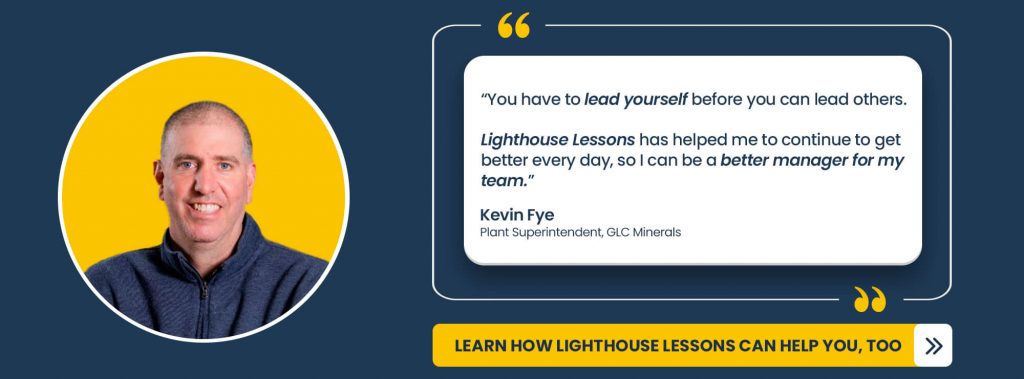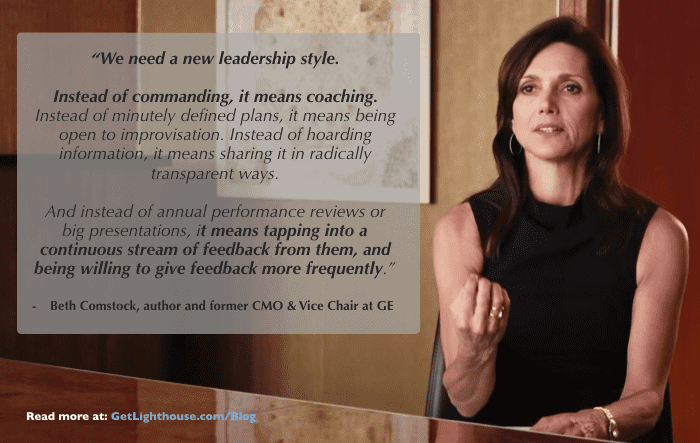"Being a good coach is essential to being a good manager and leader. Coaching is no longer a specialty; you cannot be a good manager without being a good coach.
The path to success in a fast-moving, highly competitive, technology-driven business world is to form high-performing teams and give them the resources and freedom to do great things, And an essential component of high-performing teams is a leader who is both a savvy manager and a caring coach."
This statement was written in Trillion Dollar Coach, a book dedicated to sharing the lessons from Bill Campbell, a leadership coach who helped some of the best executives in Silicon Valley at companies like Apple, Google, and Intuit.
The belief in the value of coaching as an essential part of management is spreading. The declaration in Trillion Dollar Coach, is just one prominent example.
How often are you coaching?
If your team can only do what they knew how to do the day you hired them, you'll be behind. Not just potentially on your work, but in the market, and in what will help retain your people long term.
Managers must invest in coaching their team members for your benefit and theirs.
Some companies are changing. According to Gallup, "Companies are shifting from traditional performance management practices to a new approach that focuses on performance development.”
Why? The old habits of annual performance management aren't working. According to Gallup's Re-Engineering Performance Management study:
"At the core of the performance management problem is a vivid and distressing picture of employees going to work every day and facing unclear job expectations, little coaching from their manager, unfair accountability practices and a lack of opportunities for development.”
If a basketball coach only gave their team feedback and advice once at the end of the season, they wouldn't win many games. They probably wouldn't be coaching very long, either. Yet, that's how many leaders manage their teams.
Today, we share how you can become a great coach at work, and teach others to be coaches as well.
How to Become a Great Coach to Bring out the Best in Your Team
Performance reviews typically happen once a year at most companies (if they happen at all). Unfortunately, in many cases, that's the majority of the coaching and feedback employees receive. No wonder so many employees find reviews frustrating.
While shifting to a model of regular coaching sounds great, the question becomes: How?!?
With these 5 approaches, you'll be on your way to becoming the great coach that brings out the best in your team:
- Coaching means growing your people
- Coaches motivate and build trust with their teams
- Coaches give regular feedback & praise
- Great coaches focus on the highest impact areas for each person
- The example you set matters most
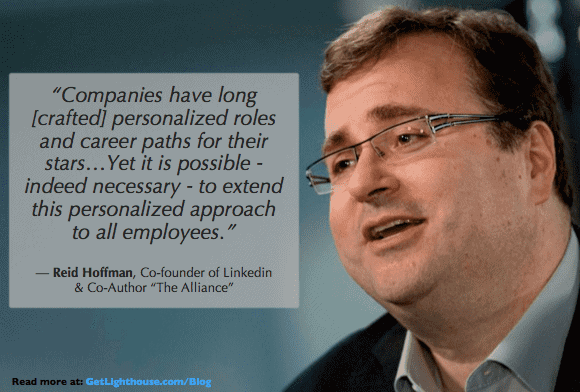
1) Coaching means growing your people
Study after study, and survey after survey, show that employees, and especially Millennials, value growth over most other perks.
For example, consulting firm PwC found that career advancement and developing new skills are key to hiring Millennials:
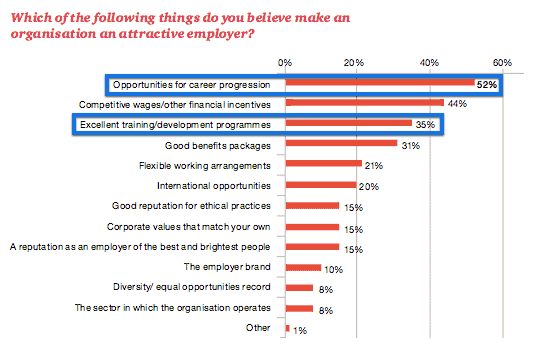
Meanwhile, Mary Meeker's Internet Trefnds report revealed that Millennials value training and development above perks that many assume are more important to them:
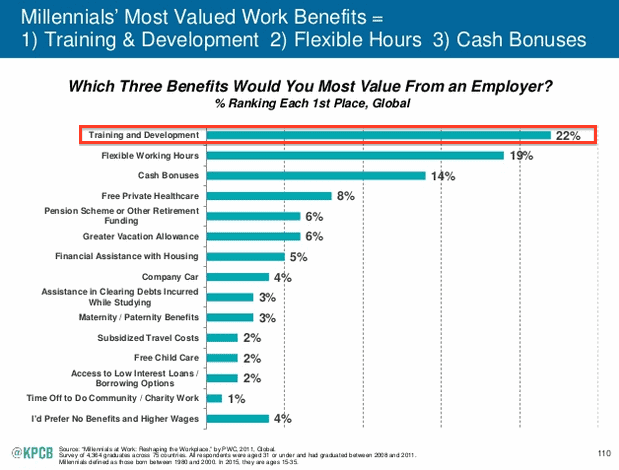
Despite all this information, most managers aren't invested in the growth of their people. Unfortunately, this then leads to turnover.

A Broken Record: The same story plays out
I've seen this play out all to often: Sam excitedly joins your company. They see a great growth opportunity in the challenges of the role compared to their last job.
8 months go by, and Sam now has their first performance review. They excitedly talk to you about their growth goals, and you note them in your review system....where they're soon lost and forgotten.
A year goes by and you ask Sam again about their goals again in the next review. With much less enthusiasm, they reiterate the previous year's goals and a desire for more, or something different. You shrug as they're doing a pretty good job and copy and paste things from before.
Meanwhile, Sam catches up with their friend Lucy who talks excitedly about the company she is working at. Sam comes into her office and meets a hiring manager who has an interesting, challenging project that catches Sam's eye.
A few weeks later Sam has an offer and is giving you their notice.
All because you didn't help them grow.
Now, their knowledge, experience, and familiarity with your company is lost, and you're starting over looking for a new hire.
To break this cycle and retain their teams long term, managers must become coaches.

I want to be different, but how do I grow my team members?
That is the question at the core of all of this. Unfortunately, many of us become managers relying on trial and error, and self-directed learning.
If you've never had a manager that helped you grow, it's understandable you're not sure how to help your team.
Start by making sure you're having a regular conversation about it. Don't wait for a performance review.
Instead, put it on your 1 on 1 agenda and start talking with them to understand A) what their goals are, and then B) how they can make real progress towards their goals.
Now, the devil is in the details on doing these kinds of things well, so we have you covered. Choose the post below that best fits your situation:
- Not sure how to have a career growth & goals conversation? This post will help you understand their goal and help them achieve it.
- Have a team member who isn't sure what their goals are? Here's a few options how to handle when they don't know the answer to what are your career goals?"
- Want to grow your people, but can't promote them? This post shows dozens of ways to grow your people without promotions.
By taking the growth of your team seriously, you will not only help them become better team members, you'll create a loyalty that lasts.
2) Coaches motivate and build trust with their teams
Knowing how to motivate your people to perform at their best is an essential part of being a great coach. That requires not only understanding each team member's personality, but building a foundation of trust. That way, they feel comfortable giving and receiving feedback.
Rapport is the basis for that trust, but it also goes a long way towards helping motivate and engage your team as well, as Gallup found in their "State of the American Manager” report:
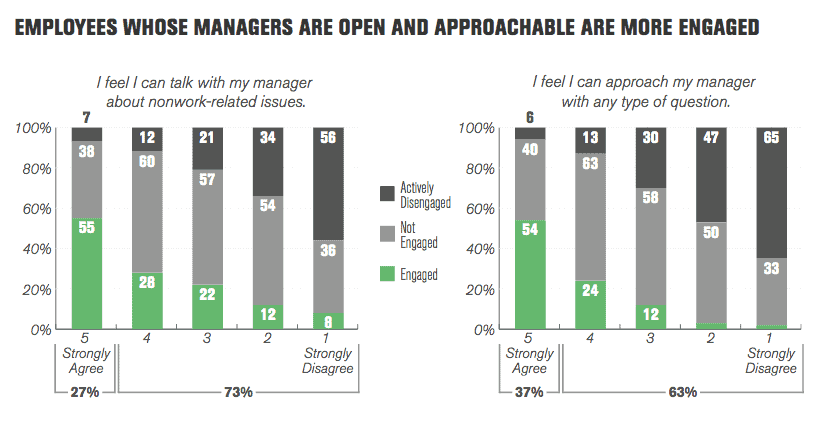
By building rapport with your team through regular 1-on-1s (and developing a culture of psychological safety), you'll develop the trust necessary to talk openly with them, so they'll be more receptive to your feedback and coaching.
The truth is, it will be impossible to get your people to listen to your feedback, and difficult to motivate them, if they don't trust you. By building rapport, you'll have a strong foundation of trust (sometimes called an emotional savings account) that will allow you to push them to reach higher and take your input seriously.
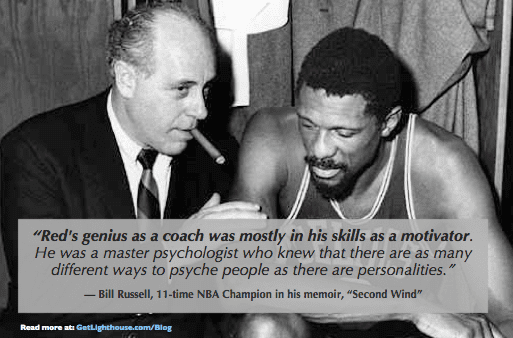
Effective motivation requires understanding each of your team members
Once you have the kind of rapport and psychological safety built that your people trusts you and feels understood by you, they'll truly listen to your feedback and encouragement. However, it's not as easy as it may sound; everyone works differently, and what motivates one person won't necessarily work for your other team members.
One of the greatest coaches of all time, having won an incredible 9 titles in only 11 years as head coach of the 1950's Boston Celtics, Red Auerbach knew just how to motivate each player on his team.
According to Hall of Fame Celtic Bill Russell in his book, Second Wind, Auerbach's greatest skill was in his ability to understand the different personalities of his players and adjust the way he talked to and motivated them based on that personality:
"He knew he had to yell at Heinsohn shrewdly and personally, whereas he bullied Satch and Nelson…with KC Jones, you had to be honest and leave him alone; he'd do the rest.
I watched Red spend time with the Celtics who played the least…he always talked to them enough to remind them how important substitutes are to a team. He tended to be more supportive of them than of his regulars.”
By taking the time to understand each of his players, Auerbach was able to get the most from them, pushing them in just the right way to perform at their best.
While you're not coaching a professional sport, the same lessons in motivation apply.
As you get to know them, use that to inform how you motivate each individual team member. Think about what you know of their personality and work style to adapt your coaching approaches with them. You may be surprised what a difference it makes to their performance.
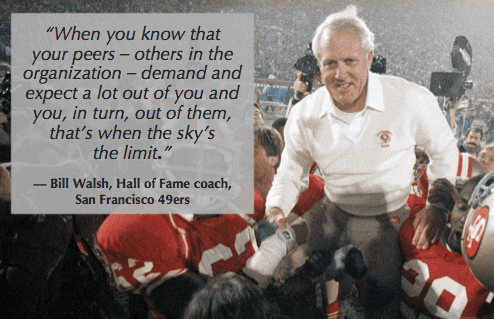
Be positive and encouraging
It's not enough just to know how to motivate someone, you need to be positive and encouraging.
In "The Score Takes Care of Itself”, NFL coaching great Bill Walsh explained that the best way to do that is simply to let them know you believe in them:
"You need to stretch people to help them achieve their full potential…the most powerful way to do this is by having the courage to say, ‘I believe in you.'
These four words constitute the most inspirational message a leader can convey.”
Walsh then backed up those words in how he coached his players and helped them grow and develop, allowing him to bring out the greatness in them, which for him included winning 3 Super Bowls.
What that looks like for you will vary by the situation and circumstance quite a bit. Sometimes, a struggling team member just needs to know you still believe in them. Other times, a high performer wants to know you notice their hard work and efforts are not taken for granted.
Ask yourself:
- Do you only motivate your team the minimum to finish the current project, or do you think about their potential and how they can do more?
- Do you encourage them to think beyond where they're at now and show them that you believe in them?
- If someone is struggling, do you support and coach them, or give up on them, either by managing them out or never giving them that work again?
Belief is the greatest motivator, so think about how you can demonstrate that belief to your team to encourage them to reach for their potential.
If you need help building some of that trust, understanding your team, or being positive with your team, these posts can help you:
- Skeptical of this idea of getting to know your team? Learn how leaders across disciplines, from the Navy to finance to tech companies all agree on the value and importance of building rapport here.
- Ready to build rapport, but not sure where to start? We have over 82 ideas for ways you can find things in common with anyone you manage, regardless of age, gender, background, etc here.
- Feel like you're not always as positive as you'd like to be at work? This post can help you reframe your mind to have a more positive outlook at work.
- Just started a new job or get promoted? Here are some questions to ask when joining a new team.
- And you can learn about the coaching brilliance of legendary champions Red Auerbach here, John Wooden here, and Bill Walsh here.
By taking the time to be more positive with those you lead, and understanding each person's unique motivations, you can help bring out the best in everyone you lead.
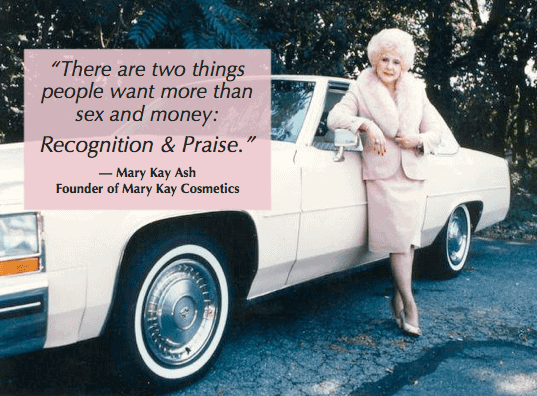
3) Coaches give regular feedback & praise
Once you have a foundation of trust established with each team member, you can start giving them constructive feedback and offer them regular coaching.
One on ones are the ideal place to offer that feedback and coaching. This is because it's private, and a regular, dedicated time you can work to make progress with them. Coaching is an ongoing effort, not a one-off event.
Regular one on ones are the best tool you have for offering regular coaching as they have major ROI for helping your team be:
- More engaged: Employees of managers who don't have regular 1-on-1 meetings are 4x more likely to be disengaged, according to a report in Harvard Business Review, while Gallup found only 15% of employees who don't meet regularly with their manager were engaged.
- More productive: GE found that, through regular 1-on-1s, they were able to 5x their productivity over a 12-month period.
- Better in many ways: Gallup found that 70% of the variance in employee engagement is caused by a person's manager, which can lead to communication issues, inter-team conflicts, and reduced performance.
However, not all feedback is created equal. You're not there to sharply criticize your team's work. There's a lot more nuance to being a truly effective coach.
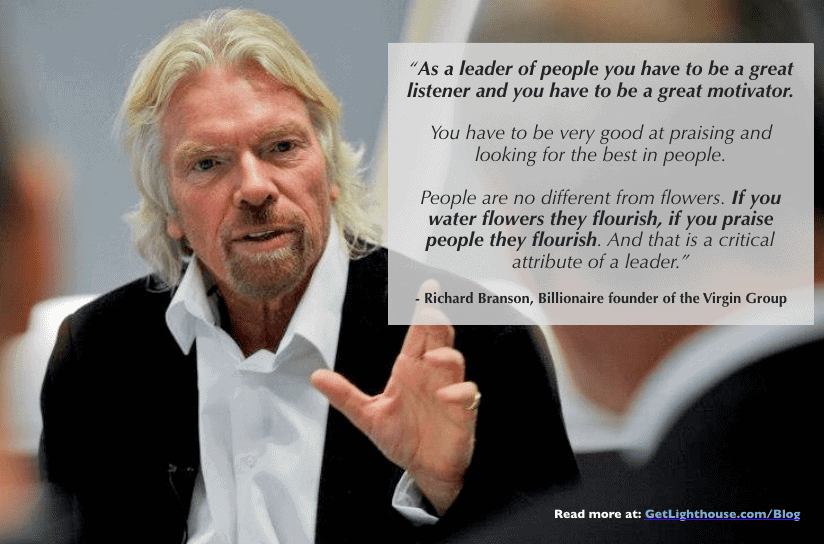
Effective feedback is based on empathy and a focus on a positive future
As a manager, it's your job to help your team perform at their best. Sometimes, that requires you to give uncomfortable feedback – both uncomfortable for you to talk about and for them to hear.
As you give feedback, remember that you're giving that feedback to help them improve. You may be surprised how much a more positive frame can impact them and you.
As former Pixar co-founder Ed Catmull said on the value of candor in talking about Pixar's collective feedback system, The Braintrust:
"Candor isn't cruel. It does not destroy. On the contrary, any successful feedback system is built on empathy, on the idea that we are all in this together, that we understand your pain because we've experienced it ourselves.
The need to stroke one's own ego, to get the credit we feel we deserve – we strive to check those impulses at the door. The Braintrust is fueled by the idea that every note we give is in the service of a common goal: Supporting and helping each other as we try to make better movies.”
Watching a Pixar movie, you can see how they get every detail "just right", while so many other movies mix up the basics of plot, character development, and scene structure.
The difference comes from Pixar having a culture of courage to bring up issues and work together to get things right. And the scoreboard of hit after hit after hit by Pixar shows this is a feature of their culture, not a fluke.
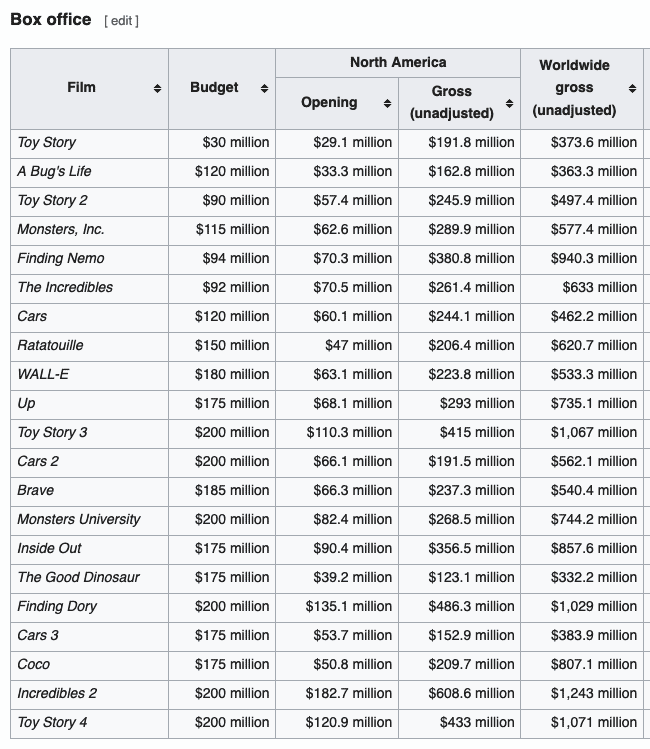
Effective feedback is blameless. You're focusing on how they can improve and get to a better future and outcome for you and your team.
However, it's not just a suggestion. You're trying to get to a new, better outcome. And that comes from giving actionable feedback.
How to give actionable feedback
If you want to improve your team members like a good coach would, follow the Prepare - Listen - Act approach:
Prepare: Organize your feedback so you can give context, examples, and the impact of the issue, so they know why it matters.
Listen: Take the time to hear their side of things and what's on their mind by asking good questions and listening before you give your feedback. You may find out something that changes the feedback you'll give, or reveals a root cause.
Act: Make sure they fully understand your feedback and then transition to very clearly establishing next steps together. Put it in writing, and follow up on it next time to close the loop and ensure accountability.
This takes a lot more work than just giving drive-by feedback to your team, but unlike that sort of unprepared, unplanned feedback, this approach will get you results.
Being a great coach is as much about preparation as the actions you take in front of your team members. A huge part of this is giving great feedback and praise.
If you need to step up your feedback and praise you give to your team, start here:
- See our step-by-step guide that goes into detail on the Prepare-Listen-Act model in our post: How to Give Constructive Feedback to Motivate and Improve Your Team
- Have a team member struggling a lot? Follow our proven process in how to coach underperforming employees.
- Need to be better about giving praise? It's just as important as feedback, and we show you 21 Ways to be more Positive and Give more Praise at Work here.
- Coaches also listen to their team, so make sure you listen to their feedback, which you can learn about in: How you can get more feedback from your team
- Get help asking the right questions to Listen and more easily Act together on your feedback by using Lighthouse in your 1 on 1s to support you and automate steps by starting your free trial here.
By taking your praise and feedback to the next level, you can become a much better coach. However, what you focus your coaching on is just as important as how you coach them.
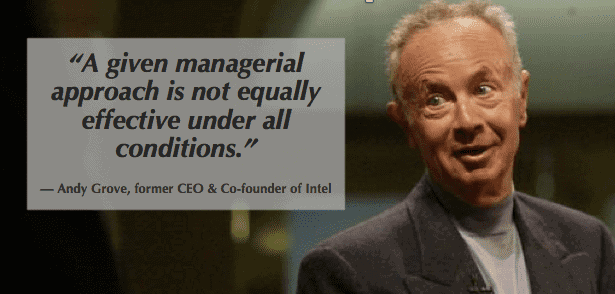
4) Great coaches focus on the highest impact areas for each person
Growth, feedback, and praise. They're all important, but they all require context.
Each of your team members is on different footing. They all have different levels of experience and familiarity with the tasks they're working on. To coach everyone well, you have to identify the right aspects of their work to focus on and the right feedback to give them.
Earlier, we talked about how legendary Celtic's coach Red Auerbach coached each of his players differently. There were a few reasons for that, and part of it was his understanding that everyone is unique. They all had different experiences, skills, and ways of responding to coaching.
In the same way, understanding your team's Task Relevant Maturity will tell you how much and exactly what coaching your individual team members need.
Coach based on the Task, not the Person
In his book, High Output Management, former Intel co-founder & CEO Andy Grove explains Task Relevant Maturity as:
"How often you monitor should not be based on what you believe your subordinate can do in general, but on his experience with a specific task and his prior performance with it – his task relevant maturity.
…as the subordinate's work improves over time, you should respond with a corresponding reduction in the intensity of the monitoring.”
The mistake many managers make is judging someone based on their overall experience or skills, instead of looking at a specific task. This manifests in a few ways:
- Fading star: A great, hungry employee rises in the ranks. They take on new tasks they're unfamiliar with and struggle because they're not supported.
- New employee failing: Just because their resume is great, doesn't mean they're familiar with how your company does everything. They're set up to flounder if not helped by their manager.
- New role, new struggles: If someone is new to a role, their success in a previous role has little bearing on how they do. Without support on their key new, tasks, you're setting up the Peter Principle to take effect.
When managing your team, ask yourself if the task they're working is one they're comfortable and skilled in or not. Then, follow this handy table from Andy Grove to coach accordingly:
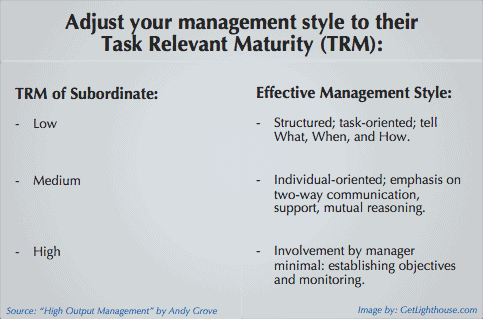
Find the best way, not your way
It's a common mistake of those in a position of power to become obsessed with wanting things done "their way.” Instead of searching for the best way to do something, they latch onto one way of doing things and refuse to keep an open mind out of a desire to preserve their ego.
One of the all-time greatest coaches in sports history, former UCLA men's basketball coach John Wooden, shared many coaching lessons during his lifetime. One of the best is especially relevant to this:
"You must be interested in finding the best way, not in having your own way.”
A great coach, and a great manager, can't be a dictator. Finding the best way to coach each person on your team requires you to ask questions, listen to feedback, and understand where each team member is at so you can customize the way you coach and manage them.
To improve your ability to coach your people at the right times, dive deeper with these 2 posts:
- Get a detailed overview of the concept of Task Relevant Maturity with: The Most Important Management Concept You're Missing: Task Relevant Maturity
- And learn how your own Task Relevant Maturity can affect your team and what to do about any weaknesses you have with: The Most Important Aspect of Task Relevant Maturity Many Leaders Forget
Choosing the right things to focus your coaching efforts on can make a big impact on your team delivering the results you know they can. It can also save you a lot of time as you'll better understand what you can be more hands off on.
As you level up your coaching, there's still one more absolutely essential concept you must understand. Without it, everything else can fall apart. You'll lose credibility, and your coaching will be ineffective...

5) The example you set matters most
Your example is the most powerful tool you have for teaching your team. All the trust, effectively-laid feedback, praise, and time invested in your people won't be enough if you set a bad example.
That's something Microsoft CEO Satya Nadella knows all too well.
As told in a recent Harvard Business Review article, when Nadella took the reigns from his 14-year predecessor Steve Ballmer, he had a lot on his shoulders. Microsoft had lost much of its momentum towards the end of Ballmer's run, and a change needed to be made if they wanted to keep up.
The old processes they had in place weren't cutting it. Changes in the market were happening too quickly to keep up, and managers were too numbers driven and focused on historically what worked in the past instead of today.
Nadella leads the change
Nadella realized the company needed to shift from "being know-it-alls to being learn-it-alls” as he puts it, embracing a growth mindset that would allow them to quickly change direction and learn and apply new things when necessary.
He also understood that, as the leader, it starts with him. So, he began adopting the very behaviors he wanted the company to adopt:
- He listened to feedback from everyone and took notes
- He spoke to everyone positively and encouragingly, as opposed to judging and criticizing
- And he encouraged his people to open up about their mistakes and learn from them
"He's with you,” leadership team member Jean-Phillipe Courtois said of Nadella. "You can feel it. You can see the body language. It doesn't matter if you're a top executive or a first-line seller; he has exactly the same quality of listening.”
According to a report by HBR, when people are in doubt about their own behavior, they look to those in power for an example to follow.
That's exactly what the rest of the Microsoft team did under Nadella. Under his leadership, the corporate climate changed, they learned to adapt, and its performance improved greatly (their stock price is up 4X since he started 5 years ago).
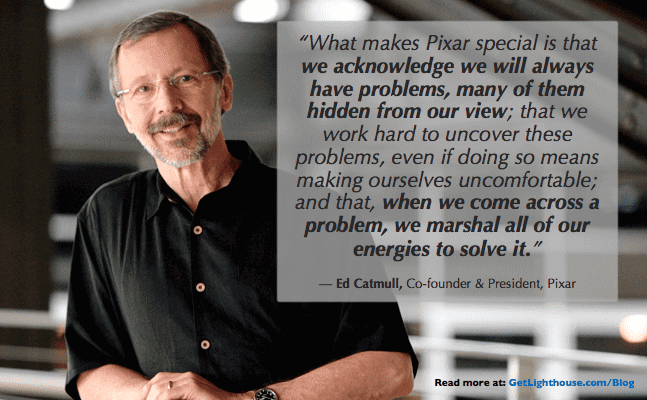
Teach your team that failure is okay
One of the most important things you can teach your team is the right perspective on failure. When you believe that failure is just a hurdle to cross, something that makes you better every time you fall and pick yourself back up, anything is possible.
"Turn pain into progress. To be wrong as fast as you can is to sign up for aggressive, rapid learning,” says Pixar co-founder Ed Catmull.
Failure is something that Pixar embraced under Catmull. He helped lead by example to establish that culture of learning from failure. As part of this they've been willing to spend years developing a movie, and even trash a story if it's not meeting their standards.
As a leader, you have to show your team that failure is okay. You have to live the values you preach, and set a strong example for being willing to learn and improve.
When you set a great, positive example, and live what you ask your team to do, you'll see your team mirror your desired behaviors. You'll also find they're more receptive to your requests and feedback.
If you're looking to work more on how you lead by example, these posts can help you most:
- Learn why your example is the most important part of your company culture with The One Key to Building and Keeping a Great Company Culture.
- If you need to change the culture or habits of your team, it starts with you. Here's how to change the culture of your team.
- A key part of being a better example is understanding how you affect others. Learn how to improve your self awareness here.
- And if you're a CEO/Founder, then you need to ask yourself these questions to ensure you have a health company culture.
--

To Bring Out Their Team's Best, Managers Must Become Coaches
"I've always had a strong bias towards action,” Walmart Founder Sam Walton once said.
Coaches understand they're playing the long game, but they focus on the actions they can take today. They make the tiny adjustments today that compound to big results tomorrow.
Today, we showed you 5 key ways to transform yourself from a manager to a true coach.
With the right approaches you can bring out the best in everyone you manage. You can help them realize their full potential and help your team deliver the results your company needs to thrive.
But this doesn't happen by accident. It takes hard work and focus on the right things.
--> Want to learn more skills to be a great coach? Learn more and sign up to be a part of our next Lighthouse Lessons program called the Coach's Clinic, which is coming in January.
Are you growing as a leader? Are you building the skills you need?
Get better as a leader every day with our bite-size leadership training programs, Lighthouse Lessons. Purpose built for busy managers like you, they help you become a better leader by mastering the skills that bring out the best in your team. You can learn more and sign up here.
